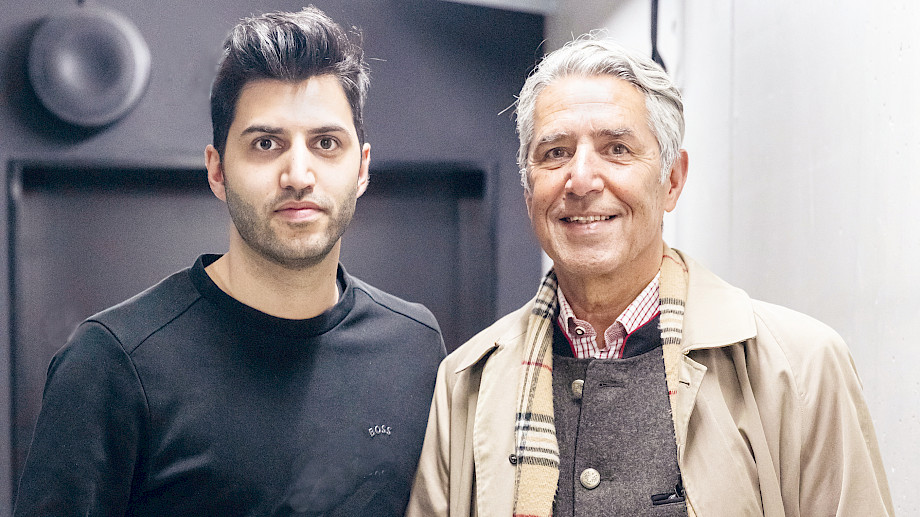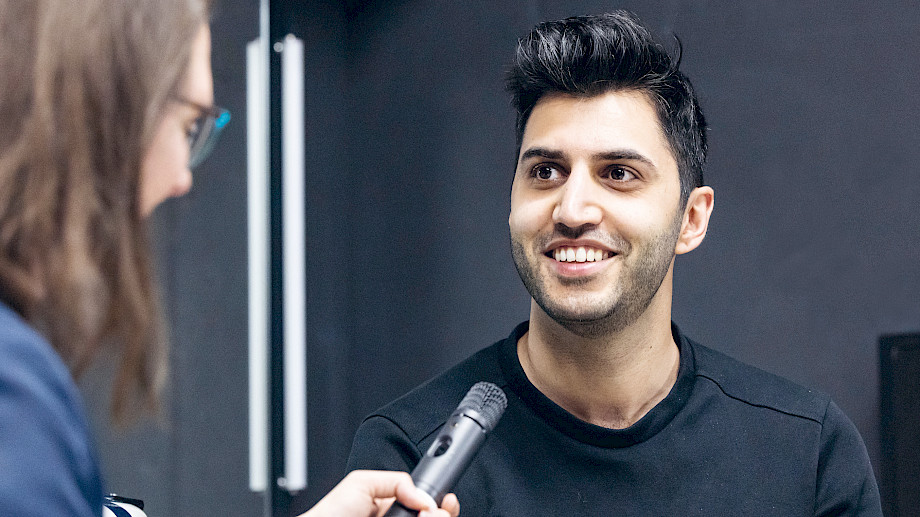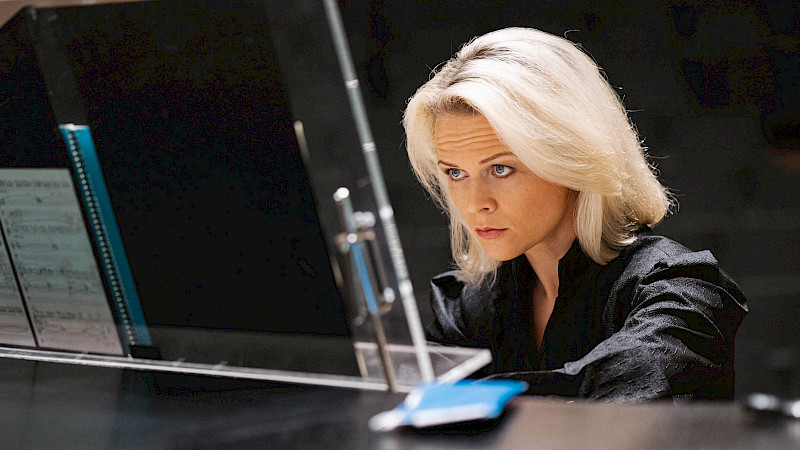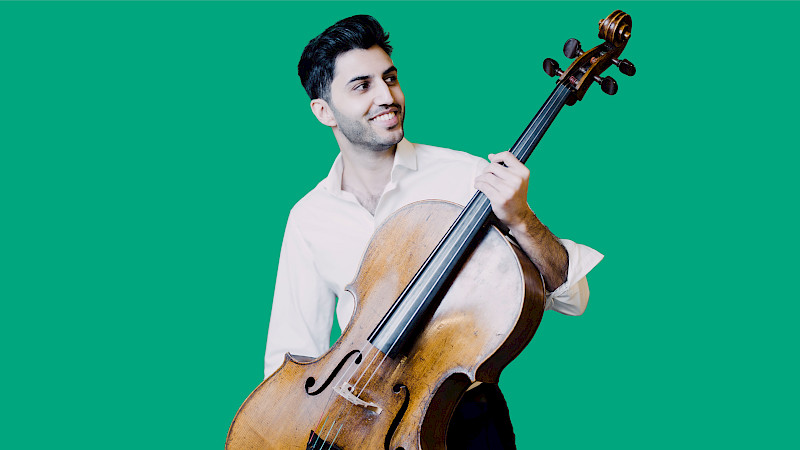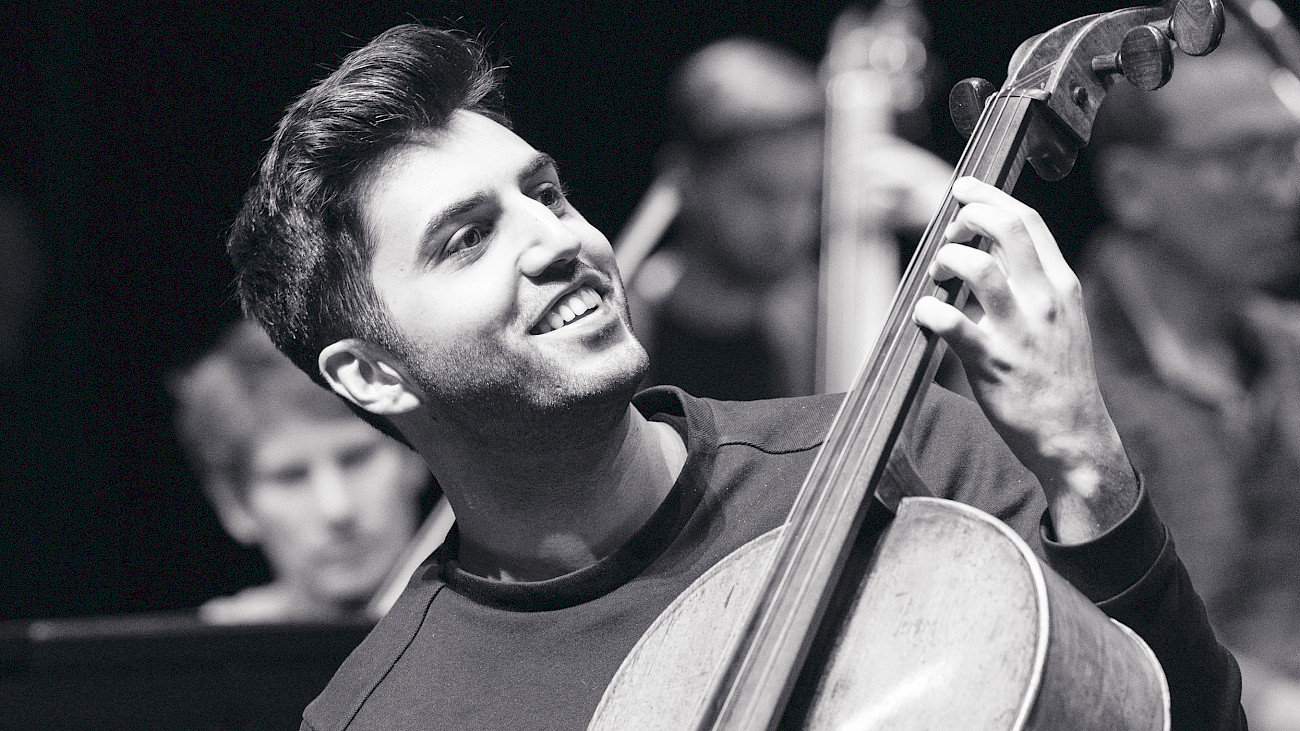
Cello, Kemantsche and Salami Sandwich
What drives our focus artist Kian Soltani? The intimate love for his cello, the still young romance with a traditional Persian instrument – and a secret passion.
With one hand on his son's shoulder, he slips him a little something, wrapped in paper and foil: "Salami!" explains Khosro Soltani later with a warm glow in his eyes. "Whenever I visit Kian at his concerts, I bring him a salami sandwich backstage. He loves those," explains the cellist's father, who is a musician himself. "Paris, London, Vienna, if it's not too far away from Vorarlberg, I go. It's very emotional to see him on stage. Always, actually." For him it was clear for a long time that his son would become a professional musician: "When he was very small, four and a half, five years old, I noticed: he has a special talent for music. But that he could establish himself so high up .... !?"
Kian Soltani has been conquering the international concert stages from Vorarlberg for ten years. When he made his debut in our Série jeunes in January 2015 with works by Beethoven, Schnittke, Ali-Sade and Prokofiev, his career was just taking off. He himself remembers that evening very well: "That was an important concert for me. I practised an enormous amount. I grew up in Vorarlberg, which is only an hour from Zurich, but very, very small. And then just to be able to play in Zurich, in the Tonhalle, that's a great privilege for a young artist." The debut with the Tonhalle-Orchester Zürich followed a few months later, as part of the Orpheum concerts under Sir Neville Marriner. In between, in August 2015, another moment for the ages: he played at Berlin's Waldbühne in front of 20,000 people with Daniel Barenboim – a personality who is an integral part of his career.
Grandson pupil of Rostropovich
But his teacher at the Basel Music Academy was the one who set the course: "Meeting Ivan Monighetti, my most important teacher for many years, when I was eleven years old – that was a very important turning point for me. Because until then everything was very playful. And he brought seriousness into it. He taught me to take it all even more seriously and to dedicate myself completely to this path. With him, this professional path began." Monighetti was himself a pupil of Mstislav Rostropovich, the master cellist of the 20th century, for whom so many composers have written works. Among them were Bernstein, Britten, Lutosławski and numerous others, as well as Shostakovich. As a grandchild of Rostropovich, Kian Soltani got to know and love Shostakovich's First Cello Concerto early on: "It is very rhythmic. The tempo is stubbornly carried through. And then the big cadenza: the soloist really pushes the limits of cello playing on his own, which is very impressive."
Shostakovich's Cello Concerto is on the programme next February. Before that, at the season opening in September, Kian Soltani presents another favourite piece that couldn't be more different: "Schumann's Cello Concerto is an insanely sensitive, empathetic piece and extremely personal. Its language is almost fragile and very poetic. It is a work that is probably mostly underestimated by the audience because it sounds so beautiful and vocal, but it is incredibly demanding. But you sort of don't hear that because it's just constantly vocal and has to stay vocal." And he points out another special feature: "It is composed in a very chamber-musical way. The whole orchestra and the soloist have to constantly react to each other."
This is precisely one of Kian Soltani's great strengths - and one that he has worked hard to achieve. He deliberately sat down in Barenboim's West-Eastern Divan Orchestra to play the symphonies of Mahler and Tchaikovsky as well as works by Wagner as solo cellist. Besides, it gave him a better understanding of how this great apparatus ticks.
Unique selling points
When he plays in an ensemble with the cello group of the Tonhalle-Orchester Zürich, both come together in an almost ideal way for Kian Soltani: "There is no other instrument that sounds as great multiplied in an ensemble as a cello. It can produce an orchestral sound because the cello picks up all the registers, from the lowest to the highest. I think that's a unique selling point of the cello."
One of Kian Soltani's unique selling points, which consciously or unconsciously influences his playing time and again, is his Persian roots. His father remembers questions after concerts when Kian played David Popper's "Hungarian Rhapsody", for example: "The ornaments in the cadenza – where do they come from? Where are they written down? They're all oriental ornaments."
But priorities are clear for Kian Soltani: "I've always been very focused on classical music. And Persian music I never practised, it was only when I was 18 or 19 that I started to look into it a bit. " The father was cautious, sought the teacher's expert advice on whether it would be beneficial for Kian to also be involved with oriental music. And Ivan Monighetti was convinced that it can only be an asset for a classical musician to master that too. After that, his father practised with him: "But not much. Once, twice a year is good." Since then, the son plays in his father's ensemble Shiraz on rare occasions and swaps cello for kemantsche.
Playfully to the roots
"Music was always there," says Kian Soltani. "There was constant music-making at home because my parents are both musicians and they also practised." His mother, Farzaneh Navai, was one of the best-known Persian or Iranian harpists; she died in 2004 as a result of cancer. His father plays the bassoon and flute as well as the three Persian wind instruments ney, duduk and sornay. Vienna was an important station for the family. Khosro Soltani was a member of the Viennese early music ensemble "Les Menestrels" and also worked with the Vienna Radio Symphony Orchestra, the Vienna Philharmonic Orchestra and the Vienna Chamber Opera, among others.
Even when Vorarlberg became the centre of his life, Vienna remained musically present: "A lot of Schubert," recalls Kian Soltani. Then there was Persian music: "Especially at the festivals. We often had many guests, then Persian music was played, not classical music. My uncle, my father, other families and friends simply played music together, a small ensemble of three or four people. A privilege that I was able to witness in my childhood." Father and son want to preserve this lightness for their approach to Persian roots and making music together in Ensemble Shiraz: "Just as classical music used to be, now this Persian music has something rather playful for me." Kian Soltani laughs mischievously, like a boy who likes to be pleased with a salami sandwich.
Translated with DeepL.com




